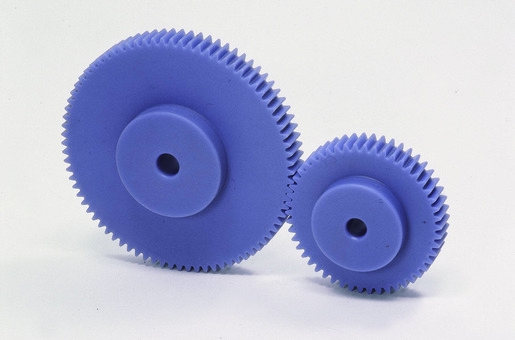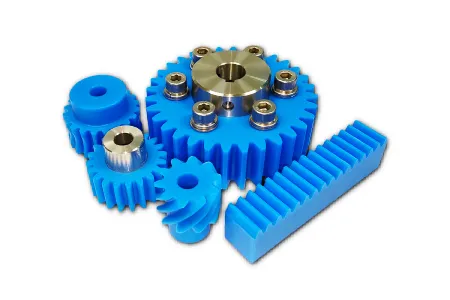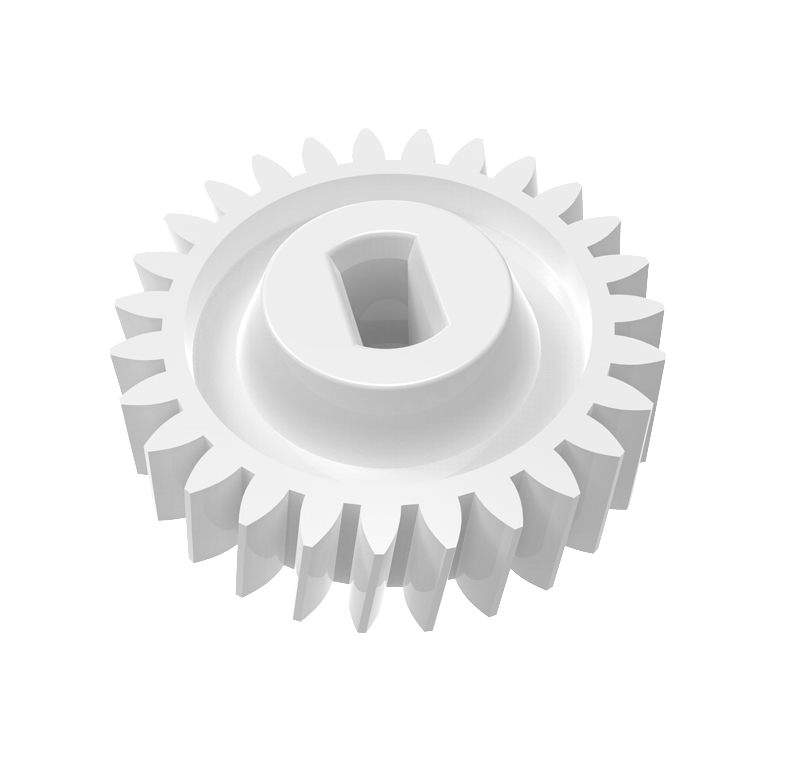Product Description
| Model NO. | Custom Parts | Application | Fastener, Auto and Motorcycle Accessories, Hardware Tool, Machinery Accessory |
| Standard | GB, EN, China GB Code, JIS Code, TEMA, ASME | Surface Treatment | Anodizing |
| Production Type | Mass Production | Machining Method | CNC Machining |
| Material | Nylon, Steel, Plastic, Brass, Alloy, Copper, Aluminum, Iron | Drawing Type | Dwg, Dxf, Step, Iges, Pdf, STP, etc. |
| Tolerance | +/-0.002mm, or Customized | Roughness | Ra0.2-Ra3.2 , or Customized |
| Surface Finish | Anodization, Plating, Passivation, Polish, Brush | Colors | Blue, Red, Black, Gold, Orange, Green, Gray, White |
| Sample Service | Available | Part Name | CNC Machining Parts |
| Service | Machining, Assembly, Surface Treatment, etc. | Dimensions | Customized |
| Lead Time | 1-4 Weeks Depends on Requests | MOQ | 1 PCS, But Over 100PCS Is a Price Break Point |
| Machining Capability | 3,4,5 Axis CNC Milling, CNC Turning, Sheet Metal | Price | Negotiable as Per Request |
| Transport Package | Foam, Carton | Specification | Custom dimension |
| Trademark | Custom | Origin | China |
| HS Code | 84799 0571 0 | Production Capacity | 50000PCS |
Product Description
| Parts Application | Industrial Parts, Bikes, Engine parts, Robotic Parts, Decoration, BMX, EDC, yoyo, CHINAMFG parts, Electronics aluminum parts, Toys parts, Gears, Car parts, 4X4 parts, Medical Parts. Oil industry parts. Audio equipment parts, Musical Instrument parts |
||
| Machining Tolerance | The best tolerance is +/-0.002mm, can do as per your request. | ||
| Roughness | Ra0.2-Ra3.2, (as per specification) | ||
| Quotation | Need to know material, quantity, surface treatment, and another special request before sending you a quotation | ||
| Software Available | CAD, CHINAMFG Works, UG, CAD/CAM/CAE, PDF. | ||
| Surface Finish | Matte, Glossy, Tumbling, Smooth, beadblasting. | ||
| Surface Treatment | Anodization, Plating, Passivation, Polishing, Brushing. | ||
| Materials Available | Aluminum, Brass, Copper, Stainless Steel, Titanium, PVC, ABS, PEEK, Nylon, Delrin, Acrylic, Steel | ||
| Inspection instruments | Height Gauge, CMM, Caliper, Electronics Scale, Micrometer/Microcaliper, Gage Blocks, Pin Gauge. | ||
| Service Available | 1. CNC machining, CNC milling, CNC turning, Sheet Metal, Laser cutting, 2. Assemble (Using press fit or other technology), 3. Packing for “ready to sale” products, 4. Customized Packaging, 5. Relative accessory purchasing. |
||
Sample Parts Show
Why Choose us
Our Equipments
Test Report Sample
Certifications
Our Package
FAQ
| Q1. Are you a genuine manufacturer? | |||
| Yes, all the products are produced in our ISO9001:2015 certified factory; We are also a company registered by China Customs with the right to export and import. | |||
| Q2. What should I offer to get your quotation? | |||
| Please offer us your detailed information for the product, such as drawings with 2D/3D by software Pro/E, Auto CAD, SolidWorks, UG etc; as well as materials, surface treatment, quantity, package. Any special requirements should be highlighted especially for tolerance. | |||
| Q3. Can we get a complete product besides CNC parts? | |||
| To some extent, yes, we can. But firstly we need assess feasibility. | |||
| Q4. What’s your top process tolerance? | |||
| Now our top process tolerance is ± 0.005mm. | |||
| Q5. What are your sample policy and trade/payment terms? | |||
| We can offer the free samples with total value less than USD10; while the buyers should bear shipping cost and import VAT. | |||
| Ex-works, FOB ZheJiang /HangZhou, CIF etc. would be OK for us. | |||
| As for the payment, small value is recommended by Paypal or Western Union; larger amount by T/T, 50% as deposit, 50% before shipment. | |||
| Q6. How about the warranty? | |||
| The warranty is for 1 year. As you know, our CNC parts have a long lifespan except for damaged by operating inappropriately. | |||
| Q7. What’s your policy for RMA? | |||
| All defective products should be confirmed by us based on the customers’ RMA list and photos first, then we’d like to refund the money or compensate the goods by free of charge accordingly. | |||
| Q8. I want to keep our design in confidence; can we CHINAMFG NDA? | |||
| Sure, to protect customers’ profit is our obligatory responsibility, signed NDA would be valid to both of us. | |||
| . | |||
| What benefit we can get from you? | |||
| 1) Competitive price | |||
| 2) High quality control : 100% full inspection before shipment | |||
| 3) High precision, tolerance can be ± 0.005mm | |||
| 4) Fast lead time (5-7days for samples, 12-15 days for mass production) | |||
| 5) Non-standard//OEM//customized service provided | |||
| 6) No MOQ, small QTY is acceptable. | |||
| 7) Factory ISO 9001 certification, ROHS material used | |||
| 9) Professional export packing: separate Blister plastic box or Bubble Wrap/Pearl Wool +Carton+ Wooden Case, keep no scratch and damage |
/* January 22, 2571 19:08:37 */!function(){function s(e,r){var a,o={};try{e&&e.split(“,”).forEach(function(e,t){e&&(a=e.match(/(.*?):(.*)$/))&&1
| Standard: | GB |
|---|---|
| Surface Treatment: | Anodizing, Painting, Phosphating, Passivation… |
| Customization: | Yes |
| Samples: |
US$ 1/Piece
1 Piece(Min.Order) | Order Sample |
|---|
| Customization: |
Available
| Customized Request |
|---|
.shipping-cost-tm .tm-status-off{background: none;padding:0;color: #1470cc}
|
Shipping Cost:
Estimated freight per unit. |
about shipping cost and estimated delivery time. |
|---|
| Payment Method: |
|
|---|---|
|
Initial Payment Full Payment |
| Currency: | US$ |
|---|
| Return&refunds: | You can apply for a refund up to 30 days after receipt of the products. |
|---|

Can plastic gears withstand high torque and load conditions?
Plastic gears have certain limitations when it comes to withstanding high torque and load conditions. Here’s a detailed explanation of their capabilities:
Plastic gears can be designed and manufactured to handle a range of torque and load conditions, but their performance is generally inferior to that of metal gears in high-stress applications. The specific capabilities of plastic gears depend on various factors, including the chosen plastic material, gear design, tooth profile, and operating conditions.
While plastic gears may not be suitable for extremely high torque or heavy-load applications, they can still provide reliable performance in many moderate-load scenarios. Plastic gears are commonly used in applications with light to moderate loads, where their unique properties and advantages outweigh their limitations.
Some plastic materials, such as acetal (POM) and polyamide (nylon), offer good strength and wear resistance, allowing them to handle moderate torque and load conditions. These materials can be reinforced with additives or fillers to enhance their mechanical properties and increase their load-bearing capacity.
It’s important to note that when designing with plastic gears, engineers must carefully consider factors such as gear size, tooth geometry, material selection, and operating conditions. Reinforcement techniques, such as using metal inserts or reinforcing fibers, may be employed to improve the strength and load-bearing capabilities of plastic gears in certain applications.
In high torque or heavy-load applications, metal gears, particularly those made from steel or other high-strength alloys, are generally preferred due to their superior strength and durability. Metal gears offer higher load capacities, better resistance to deformation, and increased resistance to wear under extreme conditions.
Ultimately, the suitability of plastic gears for high torque and load conditions depends on the specific requirements of the application and the trade-off between the benefits of plastic gears, such as weight reduction and noise reduction, and the higher load-bearing capabilities of metal gears.
It’s recommended to consult with gear manufacturers or mechanical engineers to determine the most appropriate gear material and design for a particular application, especially when high torque and load conditions are expected.

What are the factors affecting the durability of plastic gears?
The durability of plastic gears can be influenced by various factors. Here’s a detailed explanation of these factors:
1. Material Selection: The choice of plastic material is a critical factor affecting the durability of plastic gears. Different plastic materials have varying mechanical properties, including strength, stiffness, impact resistance, and wear resistance. Selecting a material with suitable properties for the specific application is essential to ensure long-term durability.
2. Load and Stress: The magnitude and distribution of the applied load significantly impact the durability of plastic gears. Excessive loads or high stress concentrations can lead to deformation, fatigue, or even failure of the gear teeth. Proper consideration of the anticipated loads and stress distribution is crucial during the design phase to ensure that the gears can withstand the expected operating conditions.
3. Operating Speed: The rotational speed at which the plastic gears operate can affect their durability. Higher speeds can generate more heat due to friction, potentially leading to thermal degradation or wear. The material selection and design should account for the anticipated operating speeds to ensure that the gears can withstand the associated stresses and temperature rise without compromising their durability.
4. Lubrication: Proper lubrication is vital for reducing friction, minimizing wear, and enhancing the durability of plastic gears. Insufficient or improper lubrication can result in increased friction, leading to accelerated wear and potential gear failure. The selection of suitable lubricants and appropriate lubrication methods is essential to ensure optimal performance and durability.
5. Environmental Conditions: The environmental conditions in which plastic gears operate can impact their durability. Factors such as temperature extremes, humidity, exposure to chemicals or UV radiation, and presence of abrasive particles can degrade the plastic material over time. It’s important to consider the anticipated environmental conditions and select a plastic material that offers sufficient resistance to these factors.
6. Gear Design: The design of plastic gears can greatly influence their durability. Factors such as tooth profile, gear geometry, clearances, and load distribution should be optimized to minimize stress concentrations, prevent excessive wear, and ensure even load distribution across the gear teeth. Proper design considerations, including appropriate fillets, reinforcements, and tooth profiles, can improve the durability of plastic gears.
7. Manufacturing Quality: The quality of the manufacturing process and the precision of the gear manufacturing can impact its durability. Inadequate manufacturing processes or poor quality control can result in dimensional inaccuracies, surface defects, or material inconsistencies that can compromise the gear’s durability. Ensuring high-quality manufacturing practices and inspections is essential to maintain the durability of plastic gears.
8. Maintenance and Service Life: The maintenance practices and service life of plastic gears can affect their durability. Regular inspection, proper lubrication, and timely replacement of worn or damaged gears can help extend their lifespan. Neglecting maintenance or operating gears beyond their intended service life can lead to accelerated wear and reduced durability.
By considering these factors, such as material selection, load and stress, operating speed, lubrication, environmental conditions, gear design, manufacturing quality, and maintenance practices, it’s possible to optimize the durability of plastic gears and ensure their long-term performance.

Are there different types of plastic materials used for making gears?
Yes, there are different types of plastic materials used for making gears. Here’s a detailed explanation of some commonly used plastic materials in gear manufacturing:
- Acetal (Polyoxymethylene – POM): Acetal is a popular choice for gear applications due to its excellent strength, dimensional stability, low friction, and wear resistance. It has good machinability and can be easily molded into gears with precise tooth profiles. Acetal gears offer low noise operation and have good resistance to moisture and chemicals. They are commonly used in automotive, consumer electronics, and industrial applications.
- Polyamide (Nylon): Polyamide or nylon is another widely used plastic material for gears. It offers good mechanical properties, including high strength, toughness, and impact resistance. Nylon gears have low friction characteristics, good wear resistance, and self-lubricating properties. They are commonly used in applications such as automotive components, power tools, and industrial machinery.
- Polyethylene (PE): Polyethylene is a versatile plastic material that can be used for gear applications. It offers good chemical resistance, low friction, and excellent electrical insulation properties. While polyethylene gears may have lower strength compared to other plastic materials, they are suitable for low-load and low-speed applications, such as in light-duty machinery, toys, and household appliances.
- Polypropylene (PP): Polypropylene is a lightweight and cost-effective plastic material that finds applications in gear manufacturing. It offers good chemical resistance, low friction, and low moisture absorption. Polypropylene gears are commonly used in various industries, including automotive, consumer electronics, and household appliances.
- Polycarbonate (PC): Polycarbonate is a durable and impact-resistant plastic material used for gears that require high strength and toughness. It offers excellent dimensional stability, transparency, and good resistance to heat and chemicals. Polycarbonate gears are commonly used in applications such as automotive components, electrical equipment, and machinery.
- Polyphenylene Sulfide (PPS): Polyphenylene sulfide is a high-performance plastic material known for its excellent mechanical properties, including high strength, stiffness, and heat resistance. PPS gears offer low friction, good wear resistance, and dimensional stability. They are commonly used in demanding applications such as automotive transmissions, industrial machinery, and aerospace equipment.
These are just a few examples of the plastic materials used for making gears. The choice of plastic material depends on the specific requirements of the gear application, including load capacity, operating conditions, temperature range, chemical exposure, and cost considerations. It’s important to select a plastic material that offers the necessary combination of mechanical properties and performance characteristics for optimal gear performance.


editor by Dream 2024-04-23